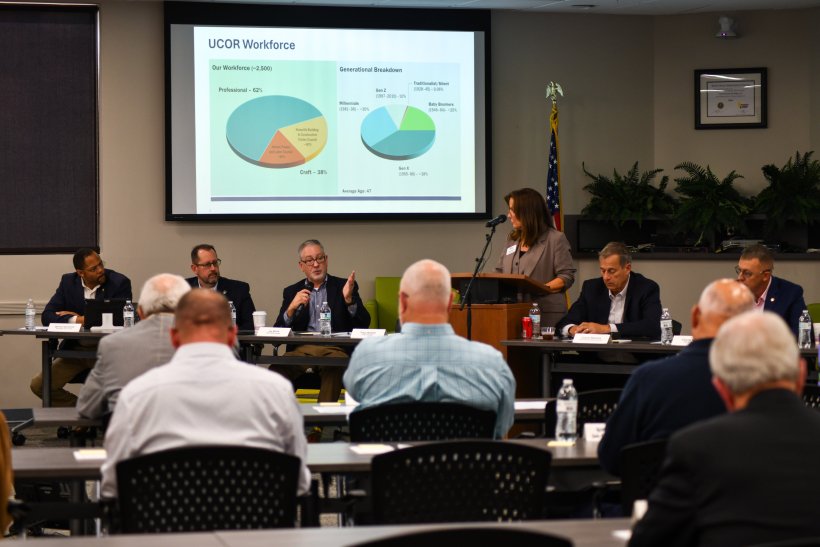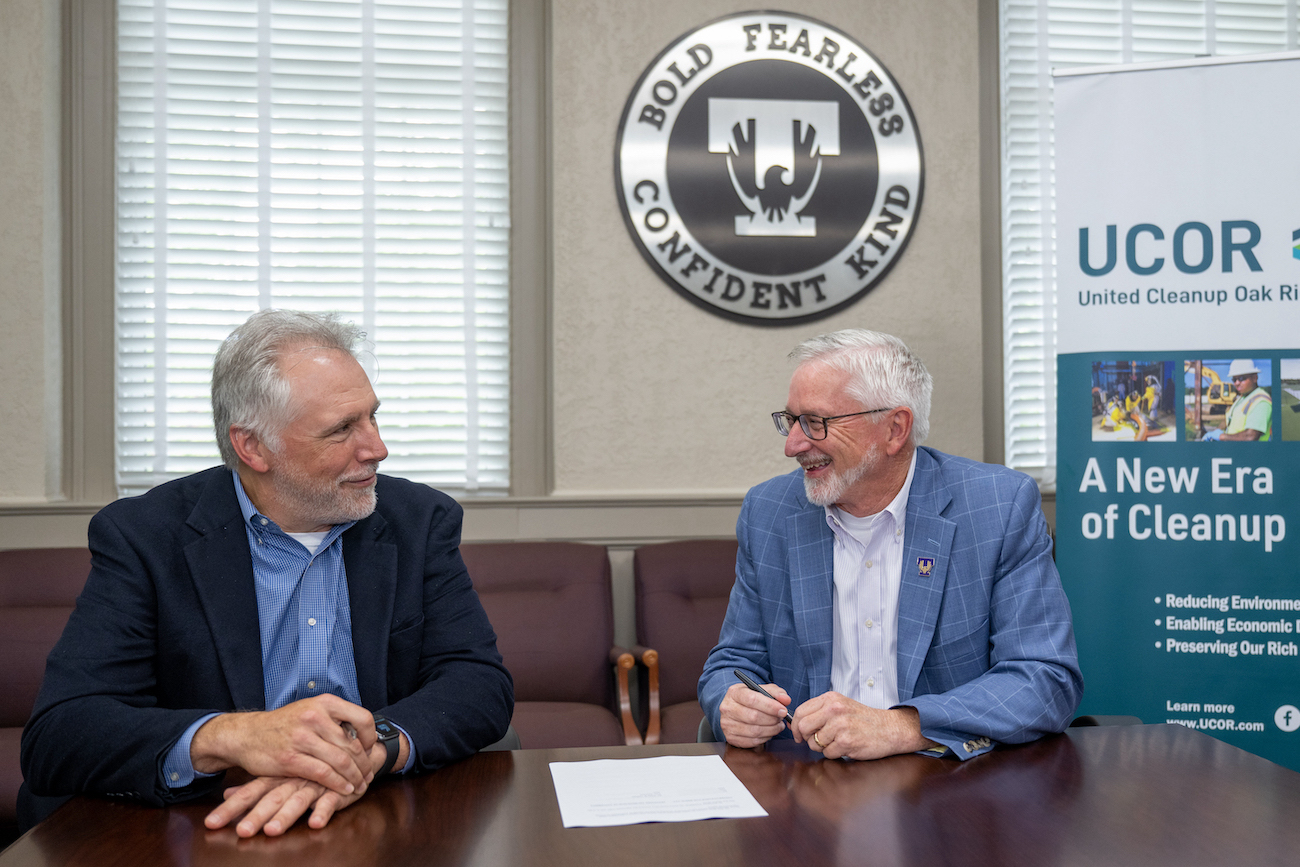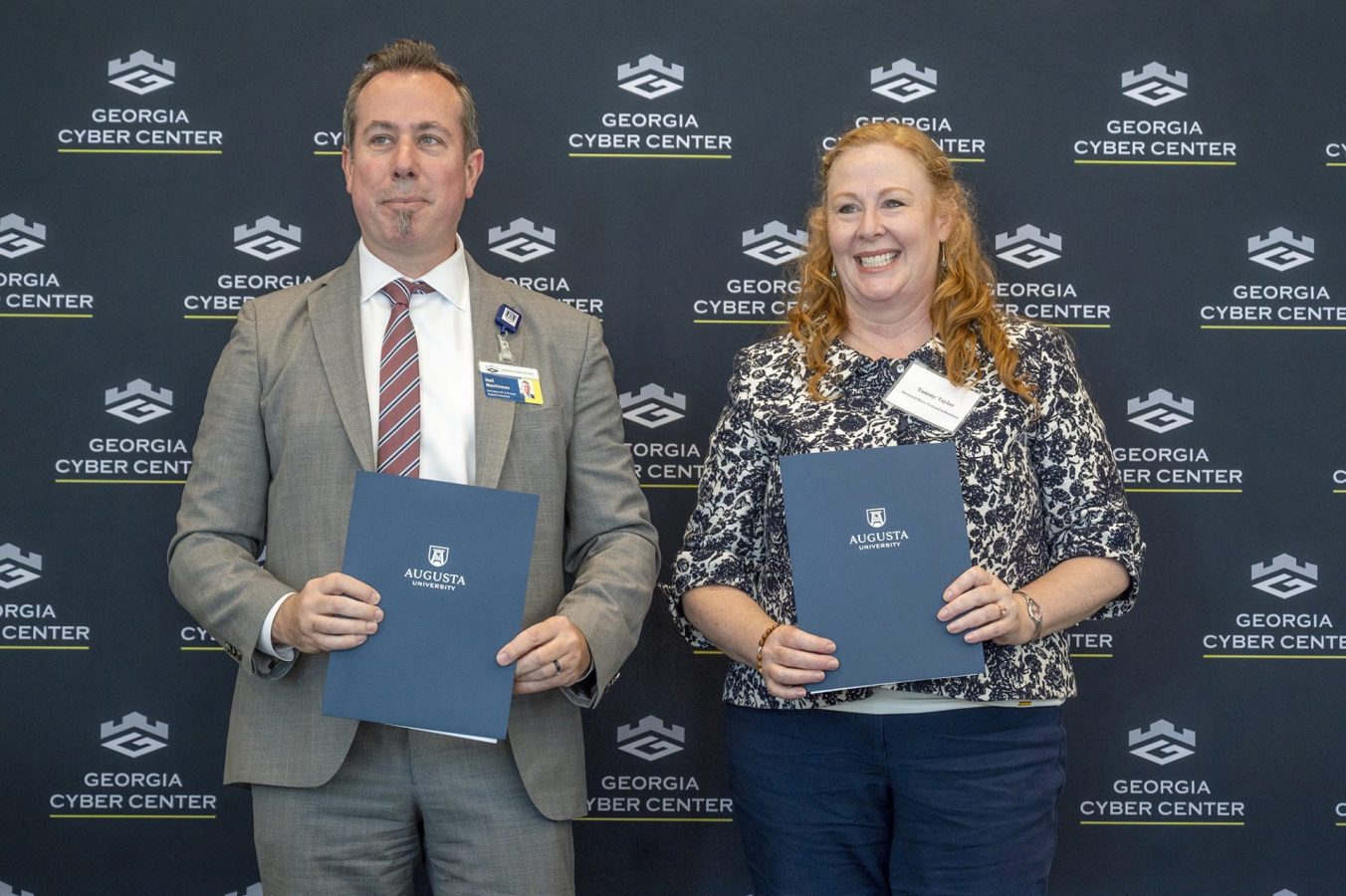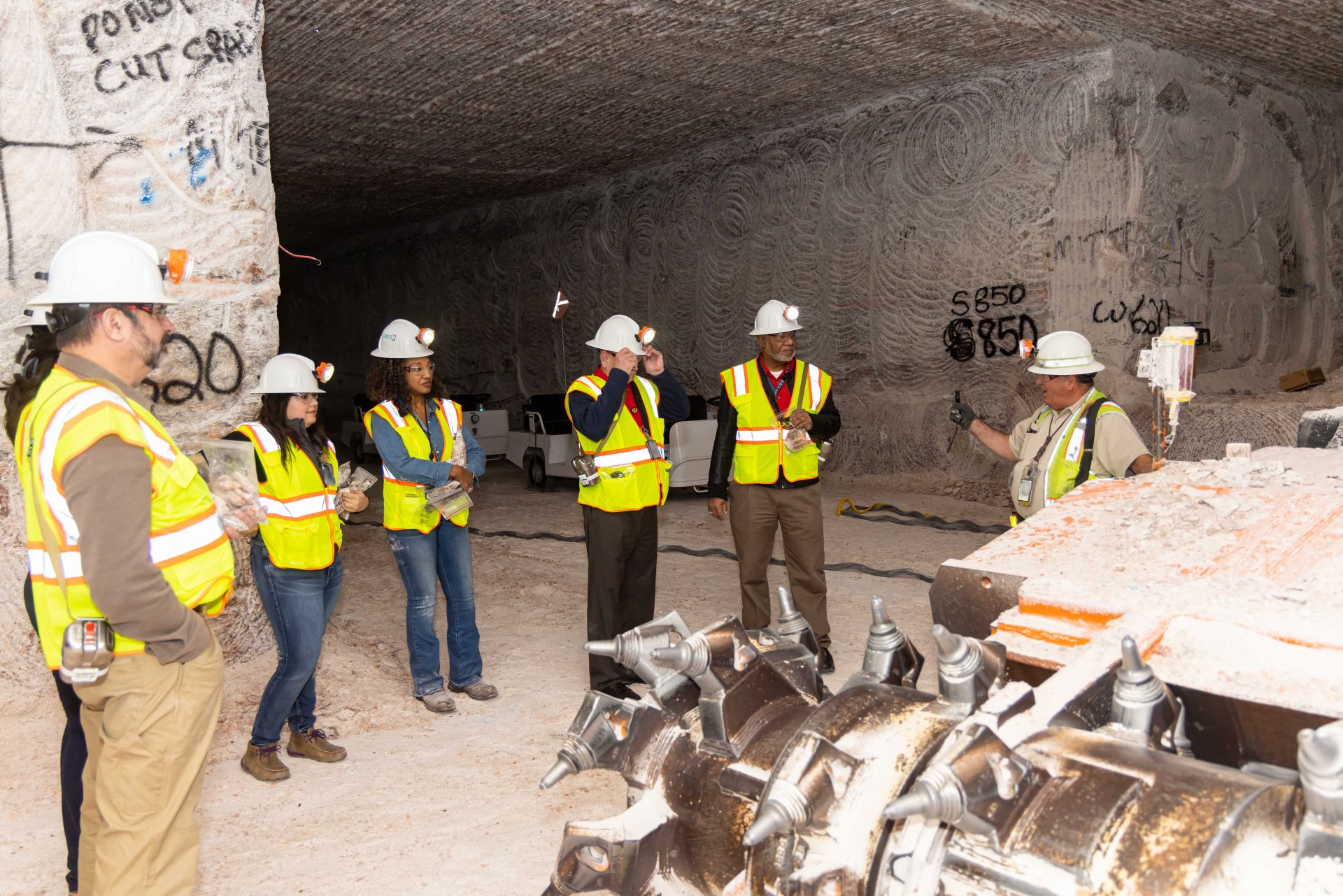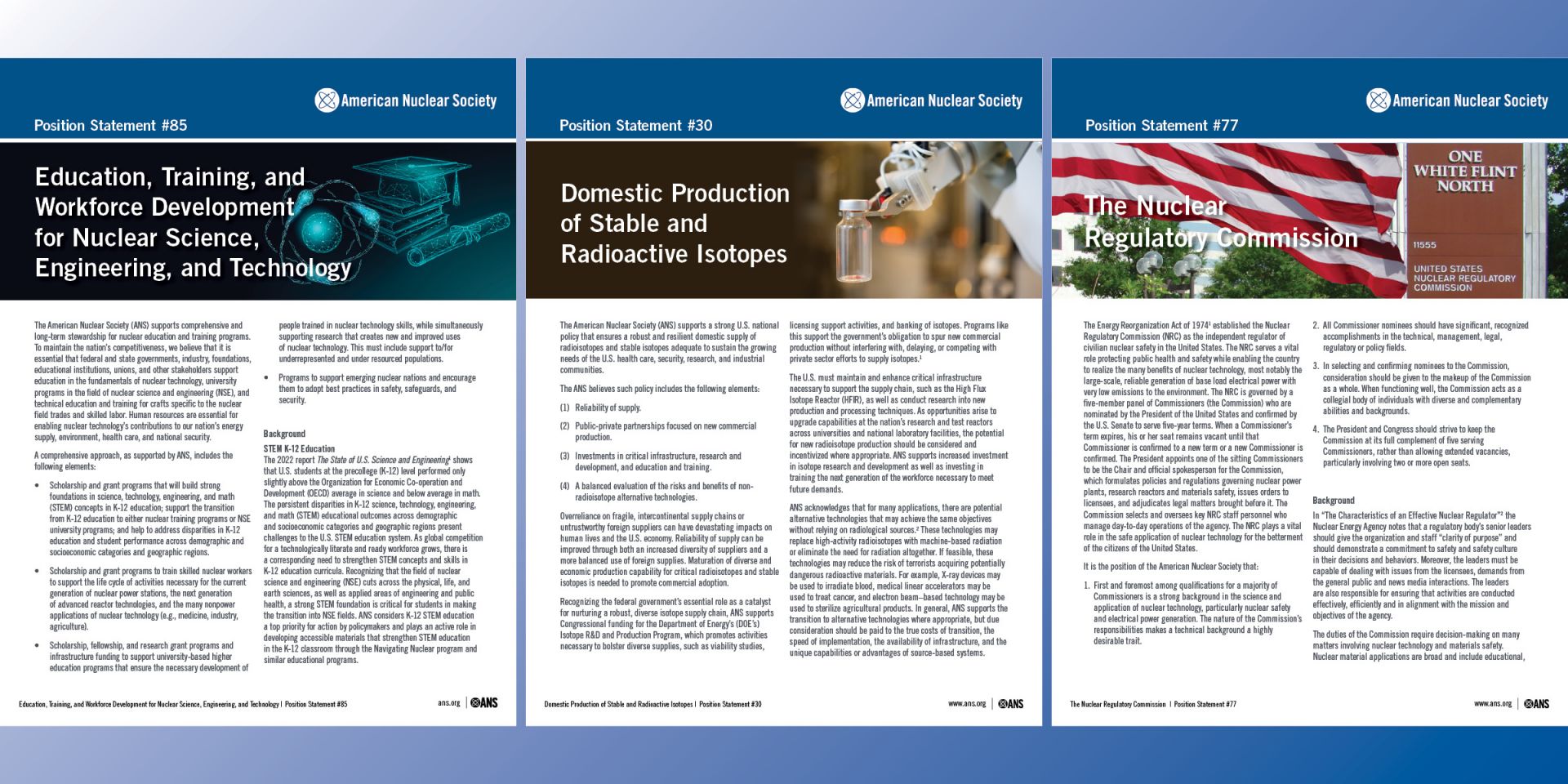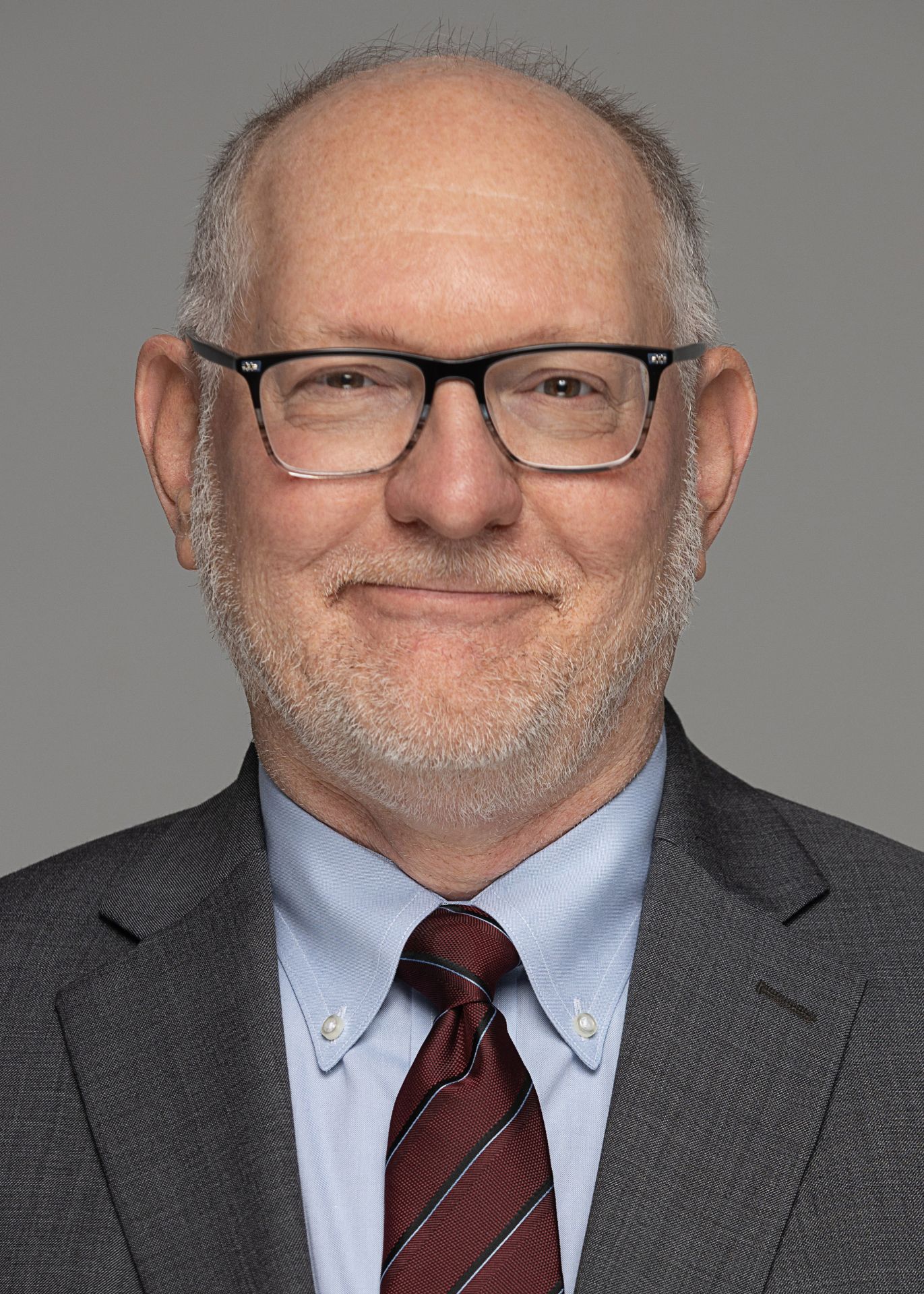An agreement was signed by IAEA director general Rafael Mariano Grossi (right) and LinkedIn cofounder Allen Blue. (Photo: D.Calma/ IAEA)
A new program called Practical Arrangement, which has been created through a collaboration of the International Atomic Energy Agency and LinkedIn, aims to bring networking and training opportunities to women in the nuclear field. The partnership will provide essential resources, including training, research, and access to LinkedIn’s global network.
OREM manager Jay Mullis (center) discusses the demographics of the current Oak Ridge workforce and the skills needed in the years ahead to advance cleanup at ORNL and the Y-12 National Security Complex. (Photo: DOE)
Federal and contractor officials, community leaders, and educators gathered in Knoxville, Tenn., on October 29 for a roundtable event focused on ensuring the Oak Ridge Office of Environmental Management (OREM) and its partners have the resources and infrastructure needed to support a robust, talented workforce in the years ahead.
The Zeanah Engineering Complex at the University of Tennessee–Knoxville. (Photo: UT–Knoxville)
Last week Tennessee Gov. Bill Lee and Stuart McWhorter, commissioner of the state’s Department of Economic and Community Development, announced that the University of Tennessee–Knoxville and Roane State Community College will receive funding from Tennessee’s Nuclear Energy Fund to support existing nuclear programs as well as develop and implement new nuclear education curriculum.
Using its portion of the $50 million Nuclear Energy Fund, the University of Tennessee will establish a new program for non-nuclear engineers to obtain a minor in nuclear engineering at its Knoxville campus. Separate funding for Roane State Community College will allow purchase of laboratory equipment for that school’s inaugural nuclear technology program, which launches in the fall of 2024.
UCOR president and CEO Ken Rueter (left) and Tennessee Tech president Phil Oldham have signed a memorandum of understanding formalizing a new partnership on workforce development supporting cleanup at the Oak Ridge Reservation. (Photo: TTU)
United Cleanup Oak Ridge (UCOR), the Department of Energy’s lead environmental cleanup contractor at the Oak Ridge Reservation in Tennessee, has formed a new partnership with Tennessee Tech University focused on building a pipeline of highly skilled workers for cleanup work at the site. Working with UCOR, the university’s College of Engineering is to launch a new nuclear engineering degree program beginning in fall 2024.
Augusta University’s Neil MacKinnon and SRNL’s Tammy Taylor at the signing ceremony for a new security and workforce development partnership.
Savannah River National Laboratory and Augusta University have announced a new agreement that formalizes a long-standing partnership and expands on a shared mission to address global security issues.
Southeast New Mexico College staff visit the WIPP site. (Photo: WIPP)
Two Department of Energy sites recently announced training partnerships with local technical and community colleges designed to offer students hands-on work experience while building a workforce pipeline to waste management jobs.
Advanced reactor demonstration projects on the horizon will challenge the nuclear supply chain in new ways. A vital component that can be east to overlook is the need for skilled construction, trades, and craft workers. That's why Idaho National Laboratory is forging valuable networks to address these needs.

INL will need technical, innovative, and safety-minded construction personnel for the advanced nuclear projects ahead. Photo: INL
Around the world, researchers in the energy industry are engaging in the work of studying, testing, and developing carbon-free energy solutions. Throughout these circles, many scientists and engineers are embracing the possibilities of advanced nuclear technologies, including small modular reactors and microreactors. While these innovative technologies are poised to address some of the nation’s biggest concerns, they also present their own unique challenges, including the need for a large and talented workforce within the construction industry.
Fortunately, the state of Idaho and its key nuclear players are well-equipped for this challenge. In southeastern Idaho, home of Idaho National Laboratory, strong partnerships throughout the region have forged networks between the lab and the educational institutions, employers, trades, and unions that are working to establish this highly specialized nuclear talent pipeline.





